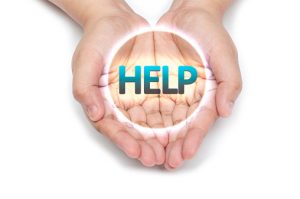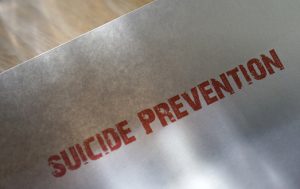Emergency Room Tips: Increasing Odds of Better ER Care for Suicidal Patient
 How many times, when you were extremely anxious, depressed, overwhelmed, and suicidal, did you call your primary care physician after hours? Remember the recording, “If this is an emergency, call 911 or go to your nearest emergency room?” You muster up the courage to go to the Emergency Room, only to endure a wait, perhaps for hours. You might conclude the wait is making you more stressed and leave (wrong choice) or you might wait to be seen by the ER staff. Is the ER staff competent to help? Maybe not. If you are overwhelmed will you need a family member or a friend to help you negotiate the ER? Absolutely.
How many times, when you were extremely anxious, depressed, overwhelmed, and suicidal, did you call your primary care physician after hours? Remember the recording, “If this is an emergency, call 911 or go to your nearest emergency room?” You muster up the courage to go to the Emergency Room, only to endure a wait, perhaps for hours. You might conclude the wait is making you more stressed and leave (wrong choice) or you might wait to be seen by the ER staff. Is the ER staff competent to help? Maybe not. If you are overwhelmed will you need a family member or a friend to help you negotiate the ER? Absolutely.
Emergency rooms are recognized as an important component of suicide prevention … if the ER is competently staffed. Studies indicate that on average 412,000 ER visits per year are related to intentional self-harm or suicide attempts. Thousands more go the ER seeking help for mental health concerns including increased anxiety, depression, and thoughts of suicide. Many visits to the ER are by folks who have not yet attempted suicide but are in a suicidal crisis and need an intervention to prevent an attempted suicide. Now for the rub.
For effective treatment to occur in the ER, the ER staff must detect, assess, and manage the suicide risk before suicidal individuals choose that most desperate and final act. In those situations in which suicidal people have made it to the emergency room, most of us believe they are safe and will be protected. Not so! Most emergency room staff, including the doctors, are poorly trained – or not trained at all – in the detection, assessment, management, and treatment of suicidal persons.
Steps to Take to Get the Help You Need
A recent report in Academic Emergency Medicine, the official journal for the Society for Academic Emergency Medicine, concludes “…suicide screening for adults in the [emergency department] (ED) is far from universal, which is concerning as many individuals at risk for suicidal behavior seek treatment in the ED.” The report states that many patients presenting with suicide risk factors were not screened for suicide. In a nutshell, a suicidal patient is going to need assistance from a friend or loved one in the ER to enhance the chances of the patient getting better help.
What can you do to get the help you need?
- First understand that the ER may not be as good as we would like it in assessing and treating suicidal patients, but it is clearly the best choice when there is a suicidal crisis. The likelihood is that if you, and your loved one or friend follows these steps, the ER, with your help, will make better decisions.
- If you are suicidal, tell a family member or friend you are having suicidal thoughts and need help. Tell the family member or friend you would like them to take you to the emergency room. Trying to handle a suicide crisis without professional help is like flying a plane without a license.
- After you arrive at the ER tell the first person working at the ER you see that you are suicidal and need help and now.
- If you are a friend or family member helping the suicidal patient, make sure the ER staff knows your friend or loved one is suicidal and needs help now.
- Make sure you see the intake person write in the records that the presenting patient is stating they are suicidal and needs help. If they don’t write it in the charts, ask them to do so. ER staff will have second thoughts on prematurely discharging a patient when the records state the patient is suicidal and thinking of killing themselves if not helped.
- Make sure the intake nurse knows clearly the last time you thought about suicide and what it is you thought. If you thought about shooting yourself, say so. If overdosing, say so. If hanging yourself, say so. If you are helping the suicidal patient make sure you understand the answers to these questions and tell the intake nurse if the patient does not.
- Understand that the point of this exercise is to get the protection you need. If protected and the underlying reasons for the suicidal thinking are properly treated with the correct counseling and medication, things WILL get better.
- If the ER staff makes the suicidal patient wait in the ER, make sure you don’t let them leave the waiting room if possible. Don’t be afraid to speak out loud and clear if the suicidal patient is leaving. Silence or being embarrassed to speak out could be a deadly decision. Remember you are with your spouse, child, or friend for a reason: getting them help & keeping them safe.
- If the ER staff makes a decision to discharge the suicidal patient, ask the staff if they assessed the patient for suicide.
- Ask the staff why they think the patient is safe?
- Ask the staff if the patient can safely be left alone? If the answer is no, ask why not? Get the name of the ER staff member who says your loved one or friend is safe. Ask the staff member for a safety plan. Insist on the safety plan.
- If you don’t get a safety plan ask to speak to the ER physician for an explanation of why no plan?
- Ask the staff for the specific reason your loved one is not being admitted inpatient. If admitted they will likely only be in the hospital for 3-5 days … a small price in time to have many more years of life.
- Listen to the reasons for not admitting inpatient. If you believe your loved one or friend is in danger for hurting themselves if not helped, tell the staff why you think that. Again, tell the staff to record in the patient’s records your concern.
- Remember the squeaky wheel gets the oil.
- Patients and their loved ones and friends can’t count on the ER to get it right. You must make it clear, even to the untrained, that your loved one and friend need to be properly assessed and managed.
At the Law Offices of Skip Simpson, we understand how devastating it is to lose a family member or friend to suicide. If you lost a loved one, you will need a compassionate lawyer who works hard to hold mental health professionals accountable. Contact a Dallas attorney with a highly successful track record who represents clients nationally. Call 214-618-8222 or fill out our online contact form.



 The link between bullying and suicidal thoughts among teenagers has long been established, with early medical journals dating back as far as 1910 addressing the impact of harassment or teasing behavior on suicidal ideation.
The link between bullying and suicidal thoughts among teenagers has long been established, with early medical journals dating back as far as 1910 addressing the impact of harassment or teasing behavior on suicidal ideation. An emotional reunion occurred recently when a U.K. man was able to track down the stranger who helped him at a dark time in his life. The U.K. man had been having suicidal thoughts and was about to jump off of the Waterloo Bridge in London. He had been diagnosed with schizoaffective disorder and was concerned that recovery would be difficult. When standing on the end of the bridge, however, he heard a man’s voice behind him. The man asked him to go for coffee and talk.
An emotional reunion occurred recently when a U.K. man was able to track down the stranger who helped him at a dark time in his life. The U.K. man had been having suicidal thoughts and was about to jump off of the Waterloo Bridge in London. He had been diagnosed with schizoaffective disorder and was concerned that recovery would be difficult. When standing on the end of the bridge, however, he heard a man’s voice behind him. The man asked him to go for coffee and talk. Military veterans are at great risk for suicide after leaving the service.
Military veterans are at great risk for suicide after leaving the service.  Many people believe that the holiday season is a time when there is a higher rate of death by suicide. The reality, however, is that this is largely an urban myth that is based on movies like It’s a Wonderful Life, which is based on a belief that people get more depressed around the holidays.
Many people believe that the holiday season is a time when there is a higher rate of death by suicide. The reality, however, is that this is largely an urban myth that is based on movies like It’s a Wonderful Life, which is based on a belief that people get more depressed around the holidays. An experienced
An experienced  Death by suicide is one of the leading causes of fatalities among people of all ages, but young people are an especially high-risk group. Unfortunately, suicide hotlines designed to prevent death by suicide by helping those with suicidal thoughts may not be reaching young people or providing adequate support to teens because these hotlines are based on phone technologies that could be considered antiquated.
Death by suicide is one of the leading causes of fatalities among people of all ages, but young people are an especially high-risk group. Unfortunately, suicide hotlines designed to prevent death by suicide by helping those with suicidal thoughts may not be reaching young people or providing adequate support to teens because these hotlines are based on phone technologies that could be considered antiquated. According to
According to  This May, the fifth edition of the Diagnostic and Statistical Manual of Mental Disorders (DSM-5) was published. According to the
This May, the fifth edition of the Diagnostic and Statistical Manual of Mental Disorders (DSM-5) was published. According to the  According to a recent study conducted by the Royal College of Surgeons in Dublin, Ireland, a link might have been found between adolescents who show psychotic symptoms – particularly those with existing psychopathology – and an increased suicide risk.
According to a recent study conducted by the Royal College of Surgeons in Dublin, Ireland, a link might have been found between adolescents who show psychotic symptoms – particularly those with existing psychopathology – and an increased suicide risk.
